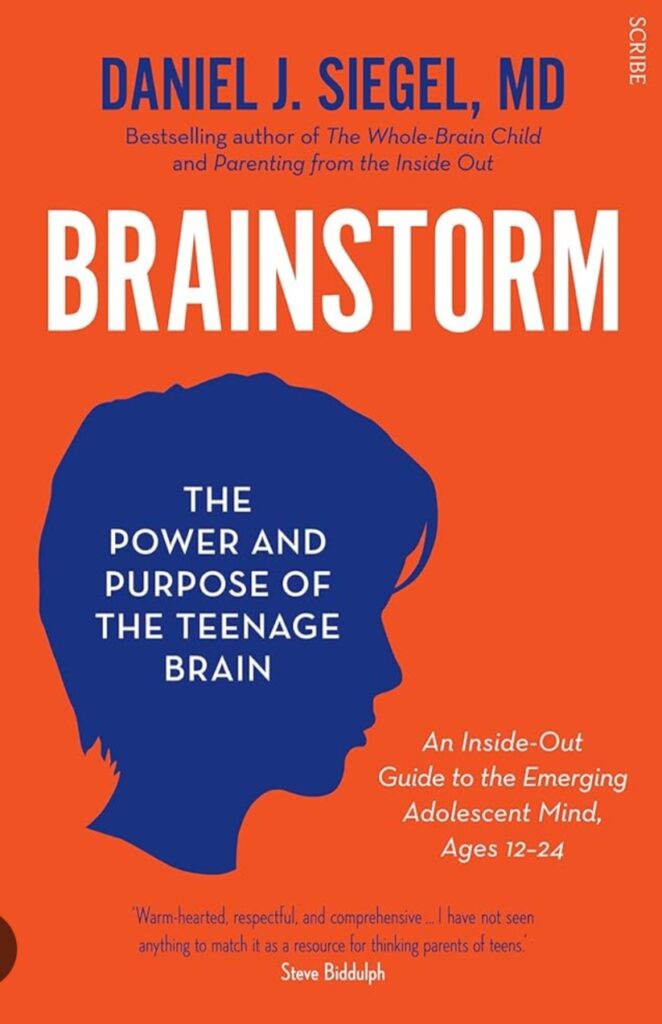
“One evening, my teenage son slammed his bedroom door after a small disagreement. As I stood there, unsure whether to knock or give him space, I remembered something from Dr. Daniel Siegel’s book ‘Brainstorm’: The teenage brain is like a construction zone—chaotic but full of potential.
It’s not about the ‘attitude,’ it’s about their brain rewiring for independence, creativity, and emotional growth. That moment changed how I approached our relationship.”
Some Insights from the Book:
- Understand the Remodelling Brain
The adolescent brain is undergoing massive changes, affecting emotions and decision-making. Instead of reacting to mood swings with frustration, try understanding what’s happening.
For example, when your teen is upset, validate their feelings by saying, “I get that you’re angry, let’s talk when you’re ready.” - Encourage Healthy Risks
Siegel explains that teens are wired to seek novelty. Instead of shutting down risky ideas, help guide their explorations into safer channels.
For example, if they want to try something new like skateboarding or travelling alone, work together to set boundaries that keep them safe without stifling their independence. - Foster Emotional Insight
Help teens develop self-awareness. When emotions are running high, invite them to reflect on what’s driving their feelings.
Ask, “How did that situation make you feel, and what do you think triggered it?” This promotes mindfulness, helping them regulate their emotions over time. - Promote Empathy and Relationships
Teens often focus inward, but fostering empathy helps them connect with others. After an argument with a friend, encourage them to consider the friend’s perspective.
For instance, “How do you think your friend felt when that happened?” This teaches them to build healthier relationships. - Maintain Open Communication
Siegel emphasizes the importance of open communication. Instead of lecturing, listen without judgment.
For example, if your teen confesses to making a mistake, respond calmly with, “I’m glad you told me. Let’s figure out how to handle this together,” fostering trust and problem-solving.
By recognizing that teen behaviour is driven by brain development, Siegel’s approach helps parents become guides, not controllers, on the teen’s journey to adulthood.